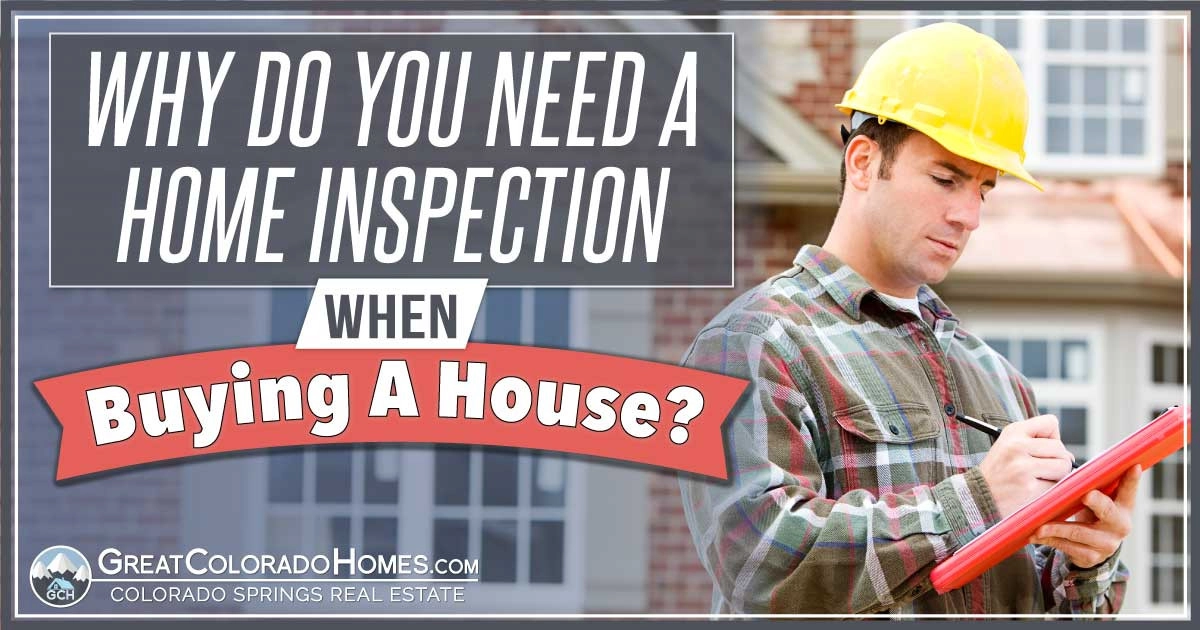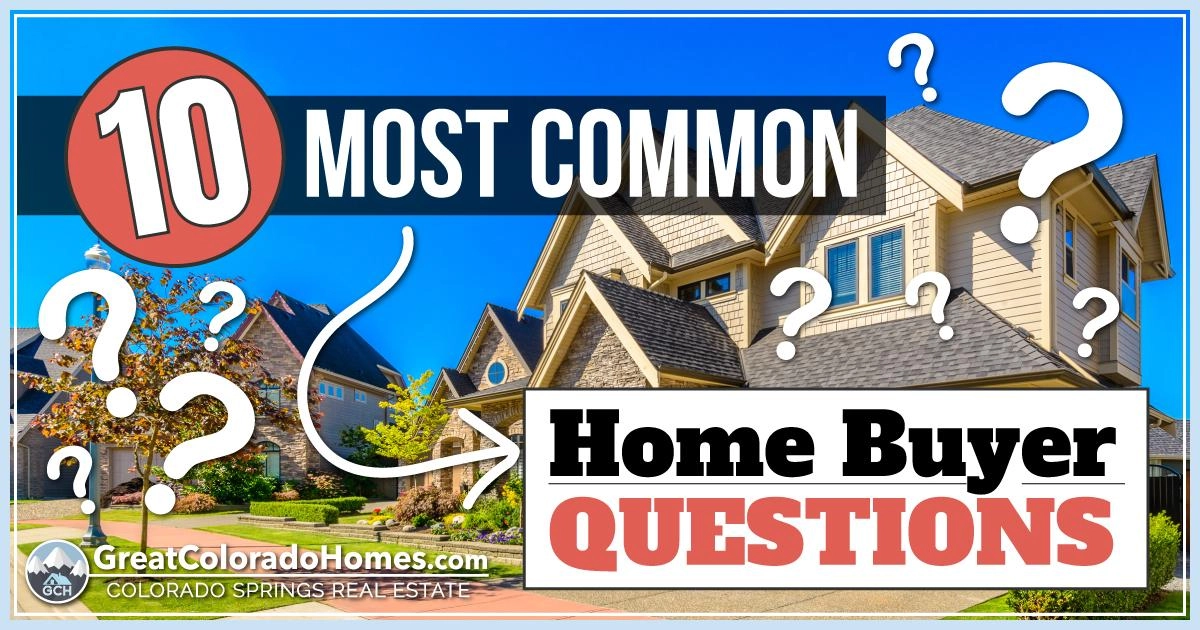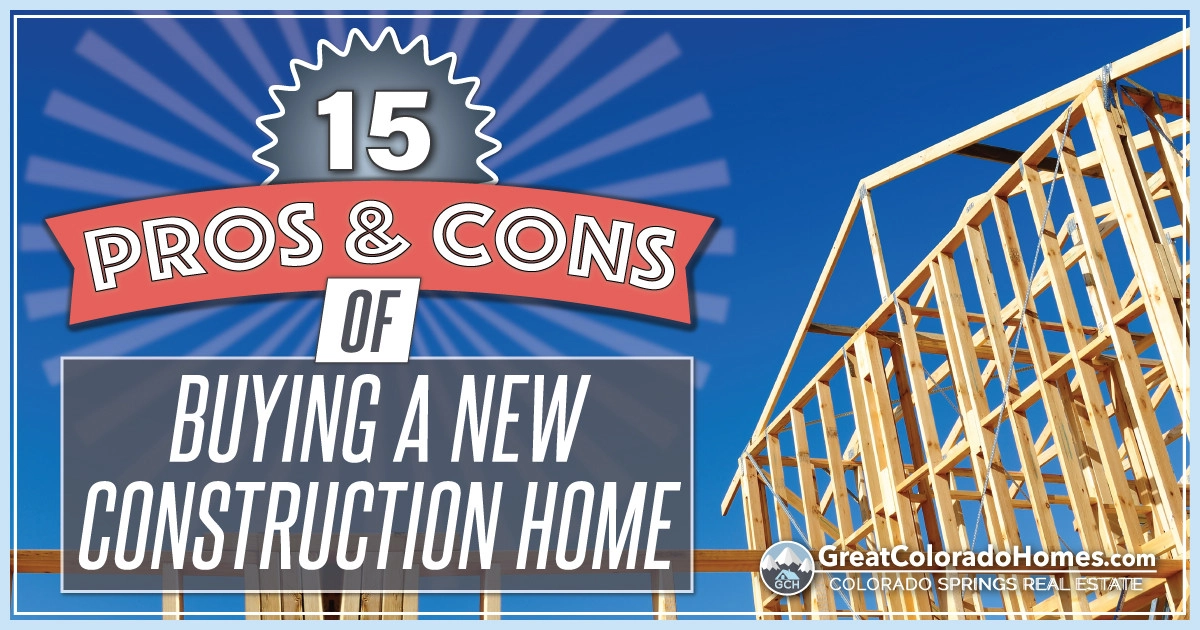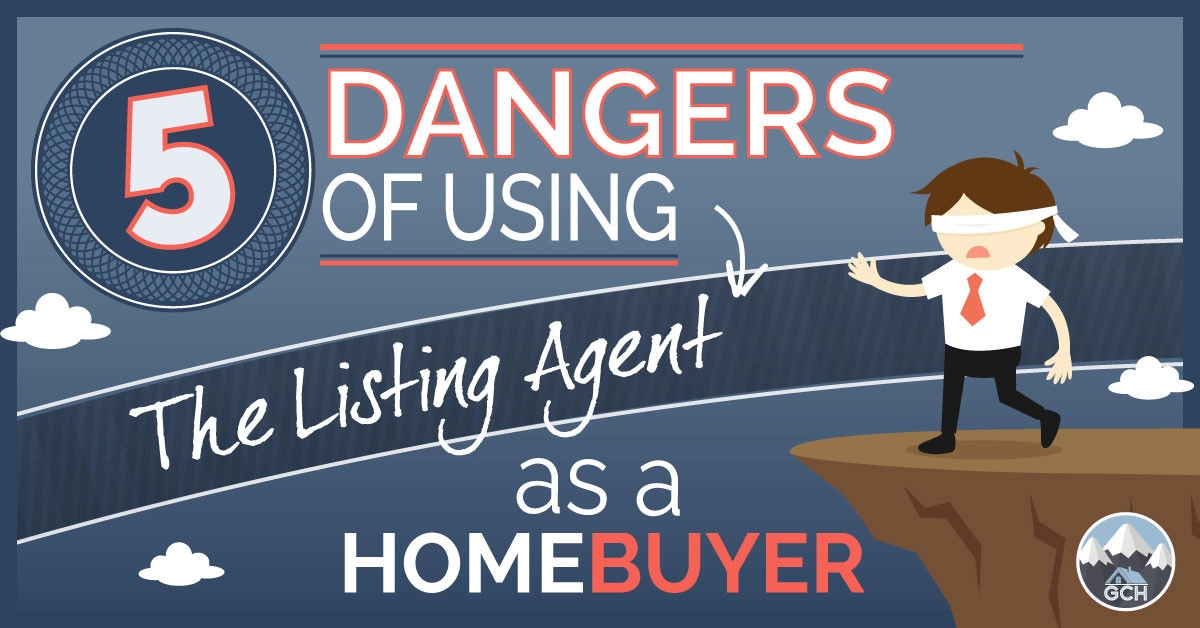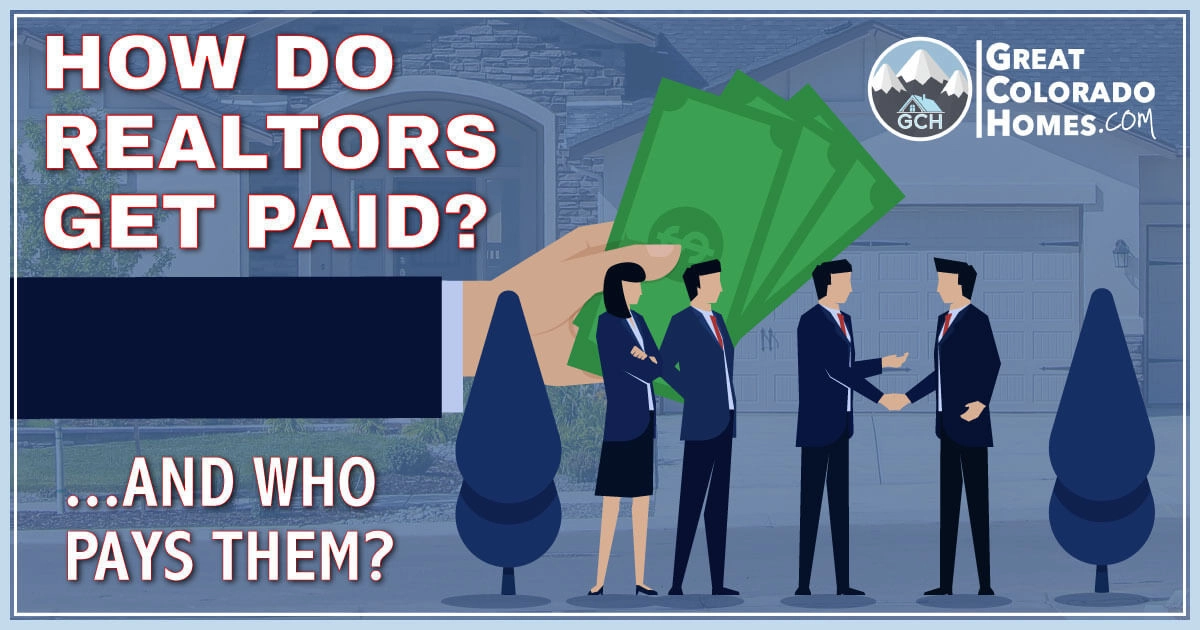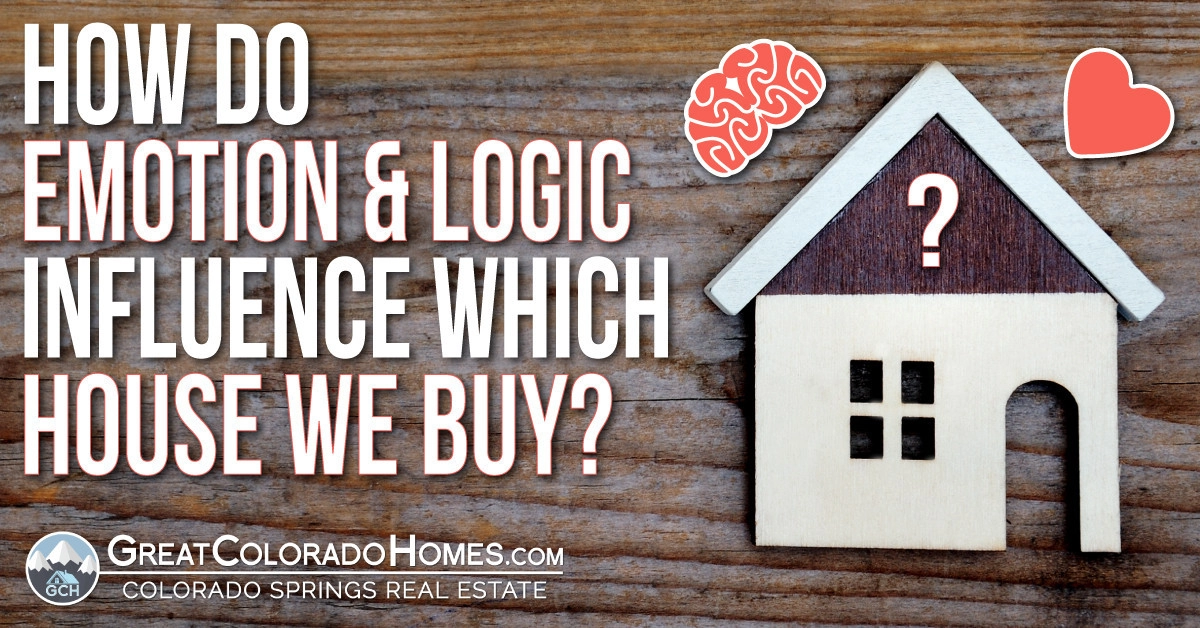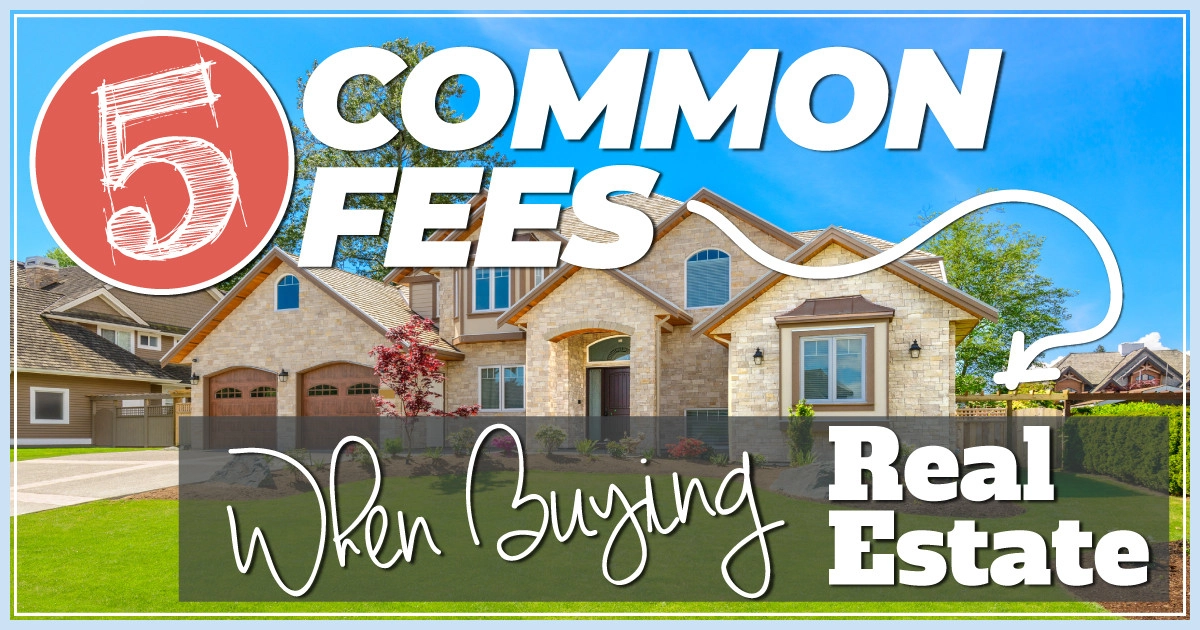Given their numerous advantages, newly built houses are in high demand. These homes provide an opportunity to create a personalized living space by offering flexibility in selecting floor plans, construction materials, and custom cabinetry.
This article will also examine the benefits and drawbacks of purchasing a newly built home. Before making a decision, weigh these potential disadvantages alongside the benefits. The home-buying process can be lengthy, but it can be streamlined with the right knowledge.
Table of Contents
If you plan to buy a newly built home, here are the pros and cons.
The PROS of Purchasing a New Construction Home 👍
1. Customization Options: Personalizing Your Space
 Building a new home offers endless customization options. Customizing your new home is one of the most exciting aspects of new construction. A custom, tailor-made home provides a unique opportunity for builders to showcase their creativity and craftsmanship. It also allows you to express yourself with finishes that reflect your tastes, preferences, and personality.
Building a new home offers endless customization options. Customizing your new home is one of the most exciting aspects of new construction. A custom, tailor-made home provides a unique opportunity for builders to showcase their creativity and craftsmanship. It also allows you to express yourself with finishes that reflect your tastes, preferences, and personality.
Existing homes rarely allow you to change the house's layout. You can remodel and change the old fixtures and finishings at best, but these extras can have unexpected costs. Design decisions are much more manageable with new properties. Buying a customized new home may be very appealing if personalizing your next home is at the top of your wish list.
2. A Newly Constructed Home is Exceptionally Clean
Want clean living for you and your family? Newly constructed homes offer the most sanitary solution possible for buyers. It is a great feeling to know that no one has ever lived in your home. New houses provide all the latest materials and sealants, making it impossible to find a cleaner option.
There are some drawbacks to the new materials, which we'll outline in the cons below. Overall, living in a brand new house that no one has ever occupied will eliminate any unpleasant surprises you might encounter when buying an existing older home. Purchasing new construction is the cleanest option.
3. No Need to Update with New Home Construction
From an architectural perspective, a new custom home is like a blank canvas, ready to be shaped according to your vision. When you invest time and ideas in your custom masterpiece, there's no need for updates, as the materials selected reflect the latest design trends.
When buying an existing resale house, the previous owners may have made design choices, like paint colors or flooring patterns, many years before the sale. Often, this leaves the new homeowner wanting to update certain features.
When constructing a new home from scratch with all your desired features, you have many design choices to make on your own.
4. New Construction is Energy Efficient
The new energy-efficient houses constructed today can make everyday living much more manageable.
Rising utility costs will be a concern in 2025. The efficiency benefit from the new construction process causes utility costs to be lower than average. This benefit causes buyers to worry less about monthly electricity and gas bills, giving them peace of mind.
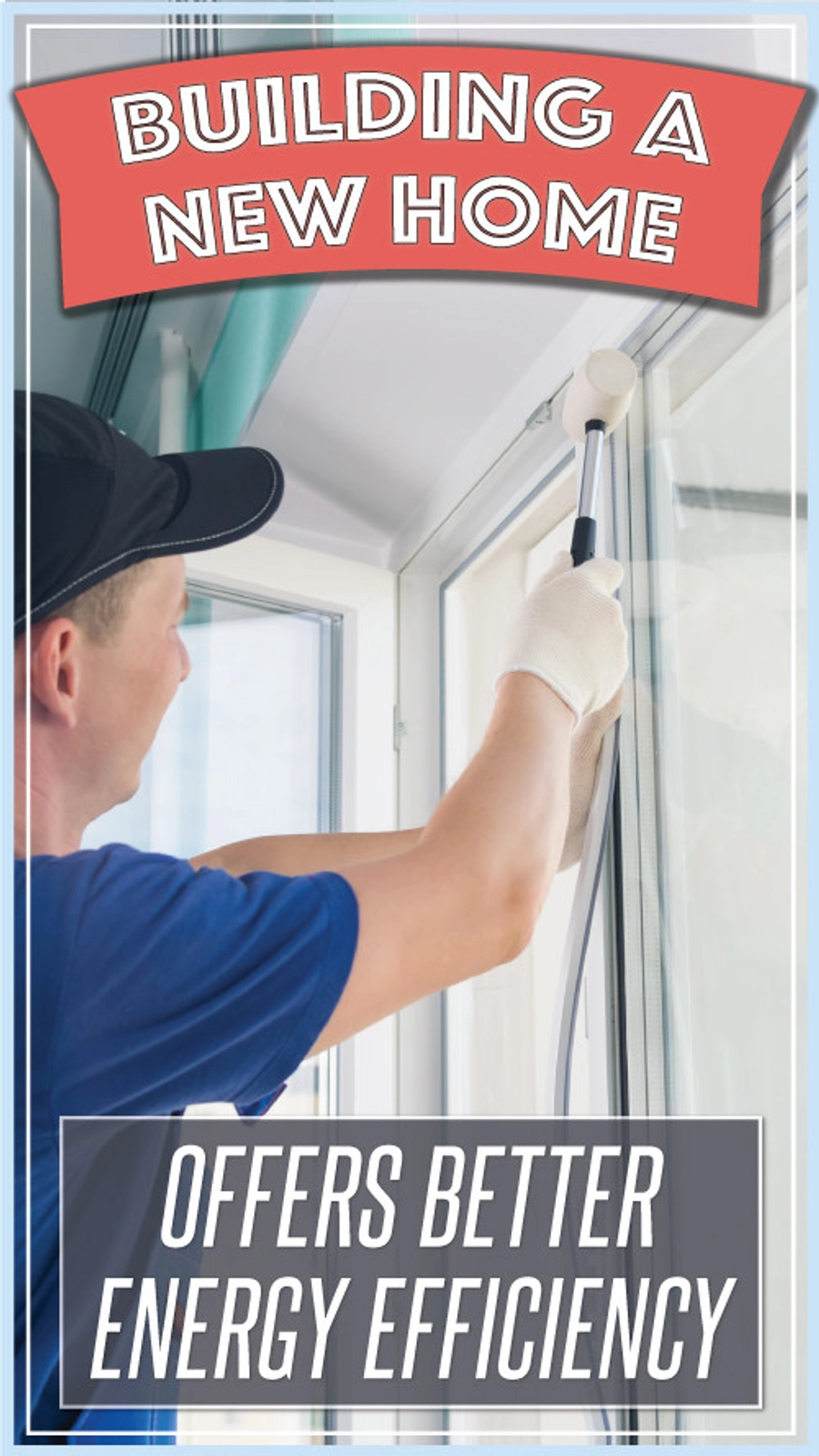 New construction homes offer better energy costs and efficiency. These new construction houses are energy-efficient for many reasons, such as vinyl windows, new door trim and seals, and better insulation between walls to keep out drafts. These products can reduce the need to heat and cool your home significantly. The savings help to offset the higher cost of a new home in the long run.
New construction homes offer better energy costs and efficiency. These new construction houses are energy-efficient for many reasons, such as vinyl windows, new door trim and seals, and better insulation between walls to keep out drafts. These products can reduce the need to heat and cool your home significantly. The savings help to offset the higher cost of a new home in the long run.
5. New Homes Require Less Maintenance
Newly constructed homes often require less maintenance compared to existing homes. You won't have to worry about an aging roof leaking during a rainstorm, and you won't fear your air conditioner breaking down in the middle of summer.
When things break down, they are usually covered by the builder's warranty, which we will discuss next. You can enjoy all the benefits of living in a brand-new home without the hassle of maintenance.
Many older homes feature outdated light fixtures, flooring, and appliances. This is one of the primary reasons why home buyers prefer new homes. When everything is fresh and clean, life feels easier and less stressful. Energy-efficient appliances offer a significant advantage in new homes.
Although newly constructed homes feature everything fresh, we still recommend obtaining a third-party home inspection. Most individuals tend to seek home inspections for pre-existing homes only. After investing in building, who wants to incur the extra expense of a home inspection?
A home inspection only costs around $350 to $500, it makes no sense to skip it. If anything is found to be defective, it can save you ten times that amount.
6. New Construction Includes Home Builder Warranties
Buying a new construction home usually includes warranties that you won’t find with existing homes. While you can purchase a home warranty later, it typically covers only a few items. Your homeowner's insurance addresses major incidents, but a builder's warranty provides even more protection.
Many home builder warranties cover issues that arise within two years of the purchase date. Since the contractors are already on-site working on new homes in the neighborhood, repairs can be made immediately.
I lived in a newly constructed home and was very impressed by how they handled repairs. It was much easier than dealing with a home warranty or filing a homeowners insurance claim.
Not all single-family home builders are equal, and their warranties can vary dramatically. Check reviews on the builder you're considering by looking at their profile on the Better Business Bureau (BBB) website and ask in the community for more insights feedback.
7. Home Builder Financing Incentives Simplify the Buying Process
Many home builders offer unique in-house financing that rivals most third-party mortgage lenders. For instance, they might use their own funds to reduce your closing costs by $5,000. Since they are already profiting from your home purchase, they can offer financing incentives that an external source cannot match.
Homebuilders can provide in-house financing and lower your interest rate, which is especially beneficial when rates are elevated. New home builders take advantage of this opportunity to sell homes to first-time buyers in a tough real estate market marked by high mortgage rates. A strong credit score will assist you in qualifying for the best financing options.
With all that said, it is wise to shop around to ensure your mortgage offer is the best. Builder incentives shift as the market transitions from a seller's to a buyer's market. Mortgage companies are competitive, and there are always new ways to structure loans with the best incentives.
The CONS of Purchasing a New Construction Home 👎
8. Buying New Construction Costs More Than a Pre-Owned Home
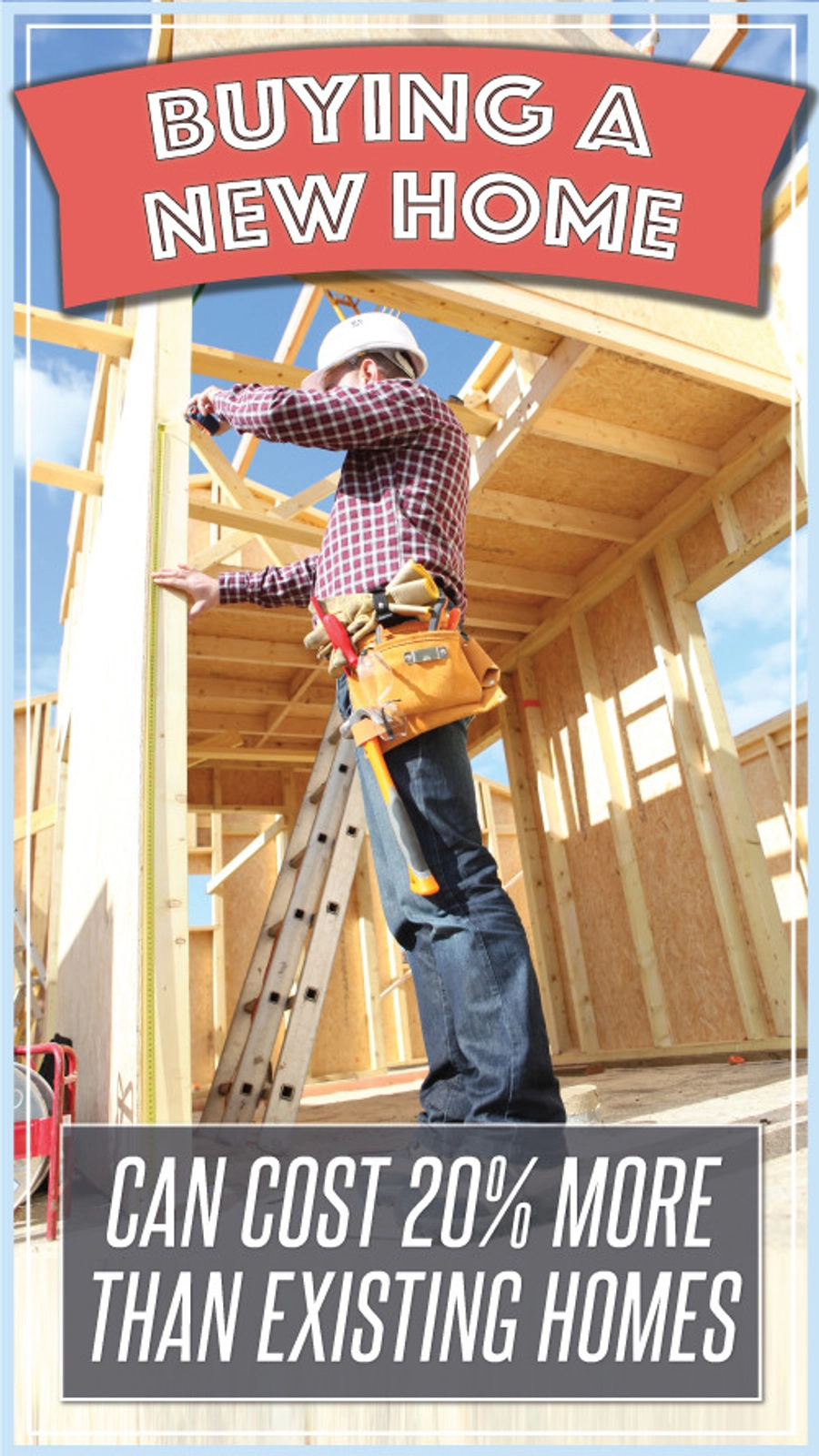 Buying a new construction home can require a more upfront investment. On average, new construction costs around 20% more than an existing home. This amount can vary based on location and the price range of the house.
Buying a new construction home can require a more upfront investment. On average, new construction costs around 20% more than an existing home. This amount can vary based on location and the price range of the house.
It's common for novice homebuyers to tour the builder's model homes and desire all the upgrades for their new home. In reality, the model home will be significantly pricier than the standard properties in the community. Homebuyers pay more for square footage when constructing a new house.
When visiting a builder's office, prepare yourself for the surprise of high price of model homes. It’s wise to seek the help of a real estate agent to guide you and manage your expectations, especially when dealing with custom-built homes.
9. Newly Constructed Homes Feature Less Mature Landscaping.
When developers establish new neighborhoods, they generally remove all the vegetation in the area. They do this because it's the most expensive way for them to break ground and begin the project.
When a new home is built, you may have to pay extra for new landscaping. This expense can be costly, as the average landscaping project for a home is around $3,000 to $16,000. These additional costs typically come out-of-pocket.
Older neighborhoods often feature much larger trees and shrubs because the vegetation has matured over decades. For this reason, some homebuyers prefer to purchase in established communities.
10. You Have Few Choices When Purchasing New
The home builders' display rooms offer a wide range of product options featuring high-quality materials. However, if you seek a product type that isn't part of their showroom selection, it's unlikely to be available.
New home builders tend to stick with their most frequently used products and materials. This choice reduces the likelihood of defects and minimizes the time spent learning new installation methods. Feel free to ask the builder for more details about their preferred products.
When buying an existing home, you can hire a contractor to install any products purchased from third-party vendors. There are no limits on the number of custom items you can add to an existing home, as long as they comply with local building codes.
11. Additional Expenses and Construction Loans
When purchasing an existing home, you can buy it at the agreed price without incurring extra costs. In contrast, buying a newly constructed home involves expenses beyond just the purchase price. Construction loans follow a different process than the standard mortgage for an existing property.
Some states require a certificate of occupancy, which can regulate electrical wiring codes, structural specifications, and energy efficiency requirements. These additional steps usually result in increased costs in the end.
Determining the total cost of a newly constructed home is challenging until it is finished. Builders like to quote the base price, but most newly built homes exceed that amount. This uncertainty creates a budgeting hurdle because of the potential for various expenses that builders may include before the property's purchase is finalized.
The median sale price for new construction properties is roughly 20% higher than the list price of an existing home. On the plus side, new homes have very low repair costs for the first 10 years.
12. New Homes Emit Off-Gassing
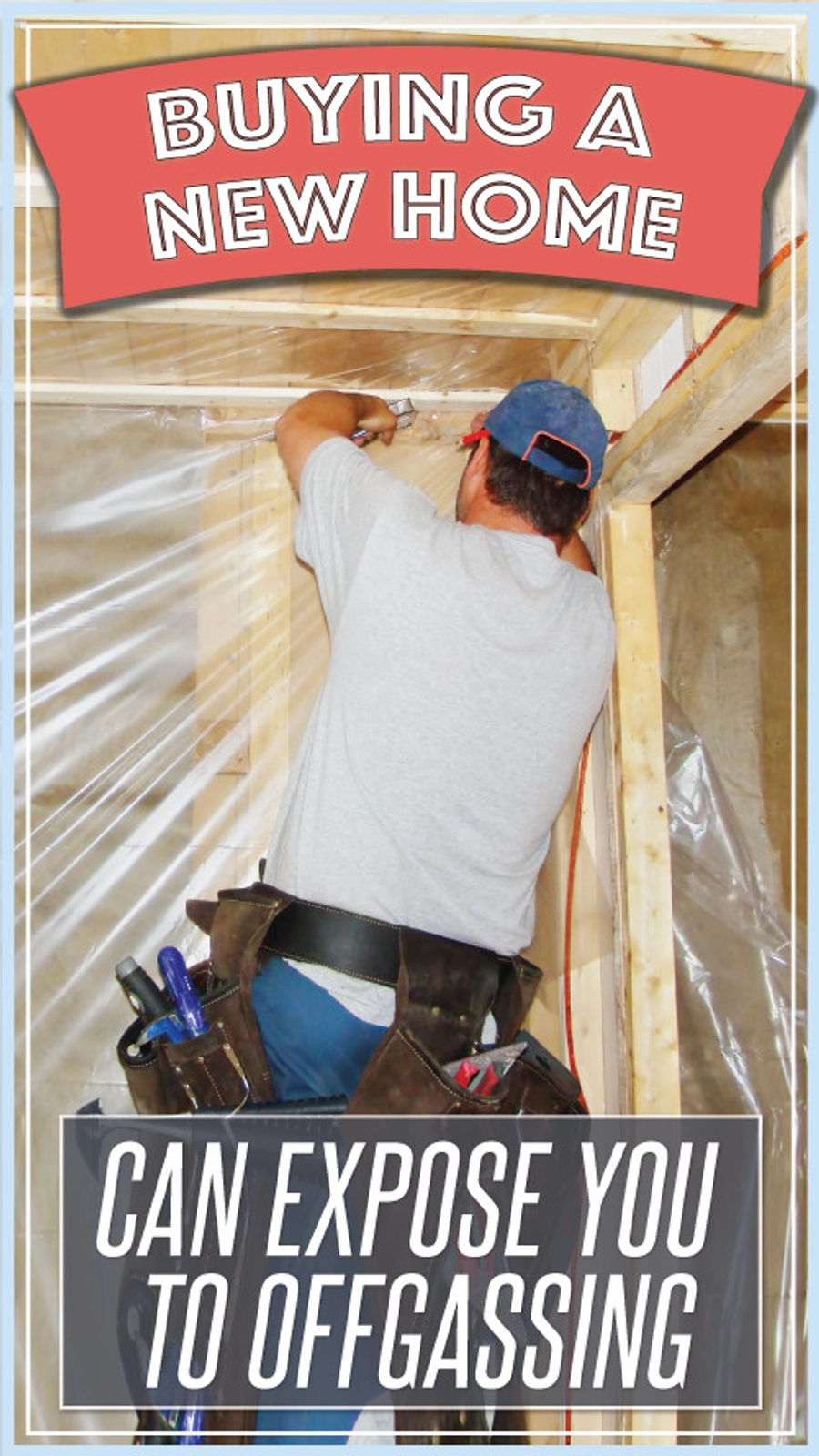 Buying a newly constructed home can expose you to harmful fumes. The pleasant scent of a new house that many people love may actually pose risks to your health. Formaldehyde, a common chemical released from new wood in homes, is often used to preserve deceased bodies. This substance is very harmful to your health.
Buying a newly constructed home can expose you to harmful fumes. The pleasant scent of a new house that many people love may actually pose risks to your health. Formaldehyde, a common chemical released from new wood in homes, is often used to preserve deceased bodies. This substance is very harmful to your health.
It's not just carpets and curtains that contribute to your allergies; the chemicals in the new house you're thinking about buying can also play a role. With over 10,000 potential chemicals releasing gases in a new home, it may take up to 10 years for these chemicals to ventilate fully.
If you are sensitive to chemicals, research thoroughly before committing to home building. Volatile organic compounds (VOCs) are the culprits in new home construction. You can search for the term online to learn more about them. The National Association of Home Builders offers some helpful information on this topic.
13. Buying New Construction Can Take Longer Than Expected
Many people find that buying an existing home is the best option due to the unpredictable home-building timeline and construction delays. With a new house, you must wait 3 to 12 months before moving in. This can pose a challenge for those in temporary housing. It's also difficult for couples who may have already sold their family home and have no permanent residence.
If you buy an existing home, you can move right into your new place within 30 to 60 days of signing the sales contract. This ease of purchase makes the new build process less appealing if you need to buy a house.
14. New Construction Neighborhoods Tend to Have Higher Taxes
New construction neighborhoods often face higher taxes than older ones due to the need for more established infrastructure. Many new developments are required to secure loans from the city to install roads, electrical grids, and other infrastructure necessary to maintain the new community. The repayment for these utilities is made annually through the community's taxes.
Many homebuyers are often surprised by the high cost of property taxes in new construction communities. A recent study conducted by WalletHub found that, nationally, the average homeowner spends $2,690 per year on property taxes. New construction property taxes can be twice that amount. Adding high property taxes to your monthly mortgage payments may be enough to disqualify you from obtaining a construction financing loan.
15. New Home Communities Have Strict HOAs
Homeowners associations (HOAs) are becoming increasingly popular each year. If an existing homeowners association wishes to add a new rule, they must hold a vote. Since it's generally easier to establish HOA rules from the beginning than to add them later, newly constructed neighborhoods tend to require stricter HOAs.
When new developments arise, they design all homes and lots to ensure uniformity. These new neighborhoods typically feature smaller plots of land with more regulations than older communities. When a homeowner makes drastic changes to their property, it negatively impacts the value of neighboring properties. This situation leads to new HOAs being stringent from the very beginning.
Conclusion
Home buying is complicated. Purchasing a home is one of the most significant investments you will ever make, and it's crucial to do it right. When buying a newly constructed home, you can shape your vision for your dream residence.
You can choose from numerous floor plans that professional architects and interior designers have meticulously developed. You also have the opportunity to incorporate exactly what you want into your house: custom cabinets or countertops, hardwood floors throughout, or even an additional bedroom if space is limited for your growing family. As you weigh the list of pros and cons mentioned, consider whether building a new home is a suitable option for you.
Take your time and consult with a real estate agent to achieve the best results. A Realtor’s experience and guidance will assist you during the buying process and reduce confusion as you create your new home.

.png)
